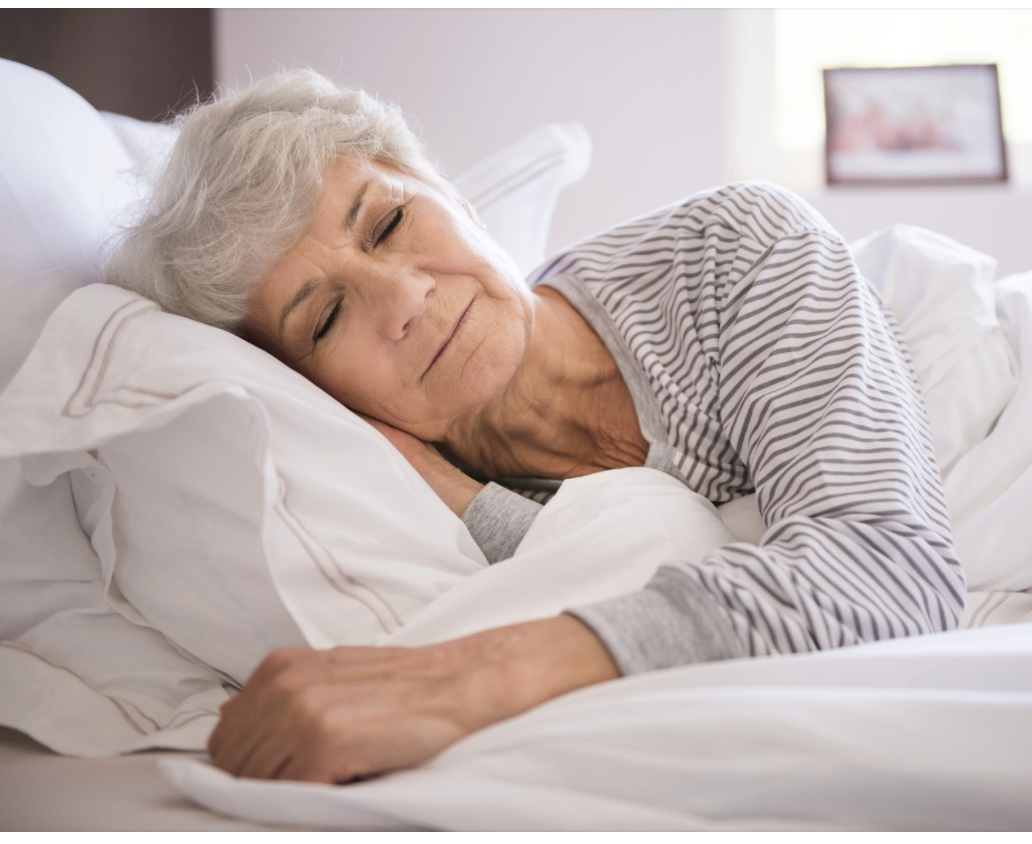Shut-Eye: Reasons And Recommendations For Better Sleep
April 28, 2021

When you find yourself wide awake during the night, or up before the sunrise, do you feel anxious or wonder what’s wrong with you? Worrying about lack of sleep can, ironically, cause you to lose more sleep, but if it’s any consolation, you’re definitely not alone. The data suggest that between 40-70% of adults over 60 struggle with sleep problems. And the implications of that sleep loss are not good when it comes to your health and well-being. Getting sufficient sleep is considered one of the essential pillars of healthy aging, and experts recommend that older adults need between 7-9 hours of sleep per night. Lack of sufficient sleep can exacerbate some of the health problems associated with aging, including the risk of falling and memory problems. For some further insights into the importance of sleep and ideas to improve your sleep habits, turn off your alarm clock and click these agebuzz links here and here.
Underscoring the value of sleep for better health in your later years, new research has been published in Nature Communications that shows a correlation between insufficient sleep and increased risk of dementia in older adults. According to the study, adults in their 50s and 60s who sleep 6 hours or less per night appear to have a 30% increase in their risk of developing dementia. While the study did not find that lack of sleep causes dementia, there does seem to be an association between insufficient shut-eye and increasing likelihood of dementia, with perhaps each exacerbating the other. Since we can do something about lack of sleep (and thereby potentially lessen our risk of dementia), it seems getting a good night’s sleep should be everyone’s goal. For more insights into this study, read here.
So now, about that boost for better sleep. An intriguing new study suggests that a method from your infancy may actually work for you now. According to research published in the Journal of the American Geriatrics Society, listening to calming music prior to and upon going to sleep may be just the ticket to lull you into a deep sleep. From researchers in Taiwan comes word that listening to calming music for 30-60 minutes before or at bedtime seems to help adults over 60 sleep better. Researchers went on to suggest you allow 4 weeks for this “lullaby” method to become fully effective, after which your sleep quality should improve. Given that it’s a risk-free method with enormous potential upside, it’s certainly worth a try before replacing your pillow or reaching for a pill. As for what music to choose? Writing in That’s Not My Age, journalist Adrienne Wyper recently described one of her go-to music sources for sleep- the five-star rated app, SLEEP by Max Richter. For a sample of the sound, slip on your pajamas and click here.







